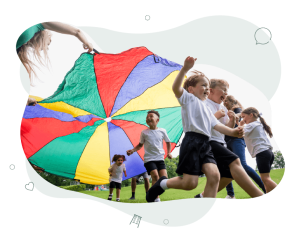37 Assessing learning outcomes: personal and social capabilities
Personal and social capabilities afford students the opportunity to be aware of the self, family and community. Such awareness contributes to children’s connectedness, acceptance and experience of positive reciprocal relationships.
Porter (2016, as cited in DET, 2020c) notes that when young students develop a range of prosocial skills, they are more likely to build positive relationships with peers. These peer relationships promote students’ feelings of belonging and acceptance, as well as positive self-esteem. Collectively, these personal and social capabilities and dispositions contribute to students being more likely to engage, learn and succeed in school.

How do teacher’s assess personal and social capabilities?
Metacognitive and self-regulatory skills
Students also develop metacognitive and self-regulatory skills that are important for higher-order thinking, creativity, planning and evaluating learning, and problem-solving (Whitebread, Coltman, Jameson & Lander, 2009). These are capabilities that are important for students’ self-management and social management.
In all types of play experiences, students are involved in collaboration with peers which facilitates friendships, promotes pro-social behaviours and attitudes, and fosters the experience of responding to peer suggestions and resolving conflict (Scott & Panksepp, 2013, as cited in DET, 2020c).
In terms of social skills, it is important to be alert to the contribution of culture and language to learning. Barblett and Maloney (2010) note when assessing social skills, teachers need to understand that students bring their own cultural lens to their learning and social experiences which informs the ways they interact with others. While many differences may be well known and obvious, there will be other unexpected areas of divergence.

